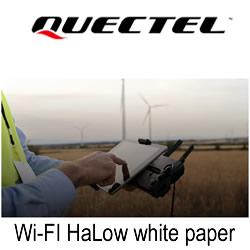DeltaQuad VTOL first to support the new MicaSense RedEdge P and Altum PT multispectral cameras
Vertical Technologies has successfully integrated the new MicaSense RedEdge P and Altum-PT on the DeltaQuad Pro #MAP VTOL UAV. This release enables the DeltaQuad Pro to carry the next generation of sensors from our partner MicaSense.
Vertical Technologies releases the MicaSense RedEdge P and Altum-PT on the DeltaQuad Pro #MAP.
Vertical Technologies has successfully integrated the new MicaSense RedEdge P and Altum-PT on the DeltaQuad Pro #MAP VTOL UAV. This release enables the DeltaQuad Pro to carry the next generation of sensors from our partner MicaSense.
The MicaSense RedEdge P is a huge step forward for the RedEdge product line, the sensor delivers spatial resolution that is more than twice as good as the RedEdge-MX. It is a single camera solution that captures calibrated high-resolution multispectral and RGB imagery, with an optimized FOV and capture rate for efficient flights.
On 9 November 2021 MicaSense announced the release of the next generation of the MicaSense Altum. The MicaSense Altum-PT has synchronized multispectral and thermal bands and pan-sharpened multispectral outputs, delivering over twice the spatial resolution of multispectral and thermal data compared to the original Altum.
This camera system has now been integrated on the DeltaQuad Pro #MAP VTOL UAV. The improvements in the resolution of the next generation make the Altum-PT the ideal solution for intensive research applications and high-value crop management in production agriculture, whether it's plant breeders seeking leaf-level detail in their phenotyping efforts, or farmers wanting to optimize their irrigation methods amidst worldwide turbulent weather trends.
Vertical Technologies is a Netherlands-based manufacturer of commercial grade VTOL drones for Surveillance, Transport, Mapping and Inspection. For more information please visit http://www.deltaquad.com.
Featured Product

How to overcome GNSS limitations with RTK correction services
Although GNSS offers ubiquitous coverage worldwide, its accuracy can be hindered in some situations - signals can be attenuated by heavy vegetation, for example, or obstructed by tall buildings in dense urban canyons. This results in signals being received indirectly or via the multipath effect, leading to inaccuracy, or even blocked entirely. Unimpeded GNSS positioning in all real world scenarios is therefore unrealistic - creating a need for supporting technologies, such as real time kinematic (RTK) positioning and dead reckoning, to enable centimeter-accuracy for newer mass-market IoT devices.
